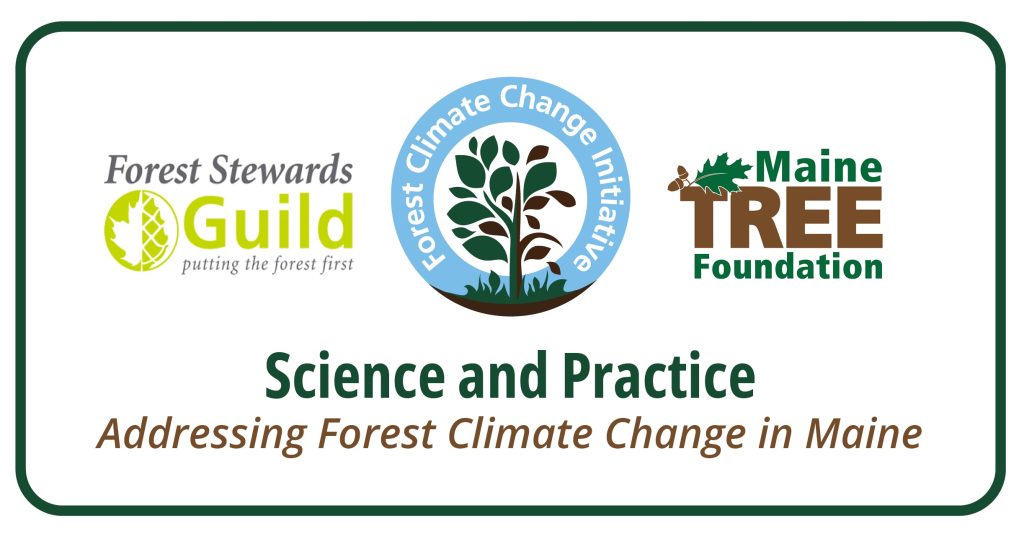FCCI Webinar & Field Tour Series: Massabesic Experimental Research Forest
 Massabesic Research Forest
Massabesic Research Forest
Webinar: December 14, 2022
1 Cat 1 SAF CFE eligible
Field Tour: December 16, 9:30am-1pm
4 Cat 1 SAF CFE eligible
Webinar Recording
The 1,497-ha Massabesic Experimental Forest consists of two units (North and South) with a number of special ecological features, including one of the largest Atlantic white-cedar wetlands in New England, many vernal pools, and numerous plants and animals that are rare or uncommon. Eastern white pine-northern red oak dominates the upland sites, along with eastern hemlock and red maple. Following years of drought, in October 1947 1,214 ha of the Massabesic forest burned (80% of the timber was destroyed or salvaged) during a fire event that consumed entire villages in southwestern Maine. On the Massabesic, the fire was a stand-replacing disturbance in some places, while in other areas only part of the forest floor was consumed, or skipped entirely.
Massabesic: Forests & Fire: Community Wildfire Protection Plan StoryMap
A Community Wildfire Protection Plan (CWPP) takes partners coming together. Scoping meetings involve key partners, including fire departments, federal agencies, state agencies, county government, non-profits, wildlife groups, lake associations, large private landowners, and user groups. Many action items for the Massabesic CWPP have developed in preliminary conversations. The plan is developed collaboratively and prioritizes hazardous fuel reduction treatments to protect at-risk communities and essential infrastructure from wildfire.
Resource Links
- Massabesic Experimental Forest, USDA Forest Service website
- McConkey, T. and W.E. Smith. 1958. The Massabesic Experimental Forest. Station Pap. NE-108. 19 p.
- Dibble, A.C., C. Rees, P. Sendak, J. Brissette. 2004. Vegetation of forested uplands in the Massabesic Experimental Forest. GTR-NE-320. 71 p.
- Leak, W.B. and M. Yamasaki. 2013. Effects of low-density thinning in a declining white pine stand in Maine. RN-NRS-170. 6 p.
- Leak, W.B., M. Yamasaki, K.P. Bennett, K. Desmarais, P. Pohl, C. Costello, and I. Munck. 2020. White pine silviculture for timber and wildlife habitat in New England. UNH Coop. Extension. 34 p.
- Beaudry, F. 2017. Road Mortality Risk for Spotted and Blanding’s Turtle Populations, NEFIS Publication 5971, Center for Research on Sustainable Forests, MSc thesis, University of Maine, Orono, ME.
- Chalmers, R.J. 2017. Wetland and Nest Scale Habitat Use by the Four Toed Salamander in Maine, and a Comparison of Survey Methods, NEFIS Publication 6780, Center for Research on Sustainable Forests, MSc thesis, University of Maine, Orono, ME.
- Waskiewicz, J. 2021. Influence of Neighborhood Structure on Growth in Northern Red Oak-Eastern White Pine Stands, NEFIS Publication 14348, Center for Research on Sustainable Forests, MSc thesis, University of Maine, Orono, ME.
- Fries, Megan L. 2002. Relationships between Rooting Restrictions, Radial Growth, and Drought Stress with White Pine (Pinus strobus) Decline in Southern Maine. MSc thesis, University of Maine.
Webinar: US Forest Service panelists Mariko Yamasaki, John Neely, Kevin Dodds, and Isabel Munck, along with Chuck Lubelczyk, of the ME Medical Center Research Inst. and Katie Glover of UMaine’s Climate Change Institute discuss landscape context, pests and forest health threats, long-term bird observations, and fire & fuel at the Massabesic.
Panelists: Mariko Yamasaki, USFS-NRS, Jon Janelle, USFS-R9-FHP, John Neely, USFS-R9-WMNF, Chuck Lubelczyk, ME Medical Center Research Inst., Kevin Dodds, USFS-R9-FHP, Isabel Munck, USFS-R9-FHP, Katie Glover, U Maine Climate Change Inst.
Field Tour: Our panelist team will guide attendees around exotic species detection, oak thinning, wildfire plans and considerations, shelterwood, group selection, hemlock regeneration, and pests/forest health. Time permitting, there will also be a visit to kettle bogs/paleo sites.
